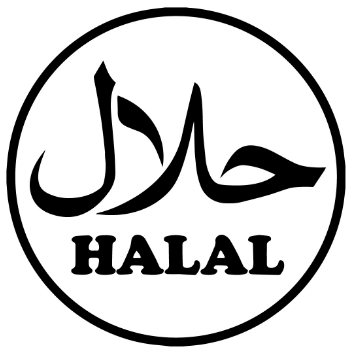 There are over 1.8 billion Muslims in the world, which accounts for nearly 25% of the global population), with many of them living in Asia and having thriving, young and growing demographics, so this 1.8 billion is likely to expand further.
There are over 1.8 billion Muslims in the world, which accounts for nearly 25% of the global population), with many of them living in Asia and having thriving, young and growing demographics, so this 1.8 billion is likely to expand further. Indeed, in a report on the halal market globally, it was predicted this market will grow in value to be worth over $9.7 trillion by 2025. Therefore, it is of no surprise that a number of initiatives are being launched by different companies to ensure that Muslims can have better transparency as to where their food, cosmetics or pharmaceutical products have come from, and how they have been prepared.
Halal in Arabic means “permissible”, but halal is not just restricted to meat - it covers a wide range of other products and services.
Halachain claims to be the first public Blockchain company that is focussed on the Halal sector, helping companies to be able to assure their clients that certain food, drugs, and cosmetics comply with halal specifications. In Malaysia, Miss Elwani is a cosmetics company that is using the Halachain platform, offering transparency of where products have come from, details of the certification each product has, and what the certification actually entails.
In Singapore, WhatHalal has just launched an App designed to help companies that wish to trace the origins of ingredients, and so be able to offer assurance that a product is ‘halal-compliant’, as there is an auditable record from producer to the shop shelf.
Multinational companies will not want to ignore the rapidly growing Islamic markets and, as global supply chains become larger and more complex, any solution that can create greater transparency and is tamper proof (which is what Blockchain technology is able to offer) is going to be increasingly in demand.
#FrontierInsights
Blockchain
Community
Logistics And Supply Chain
Market Research


